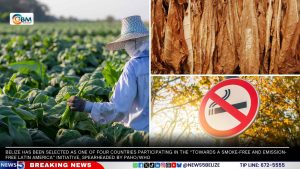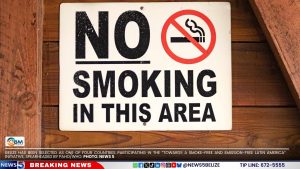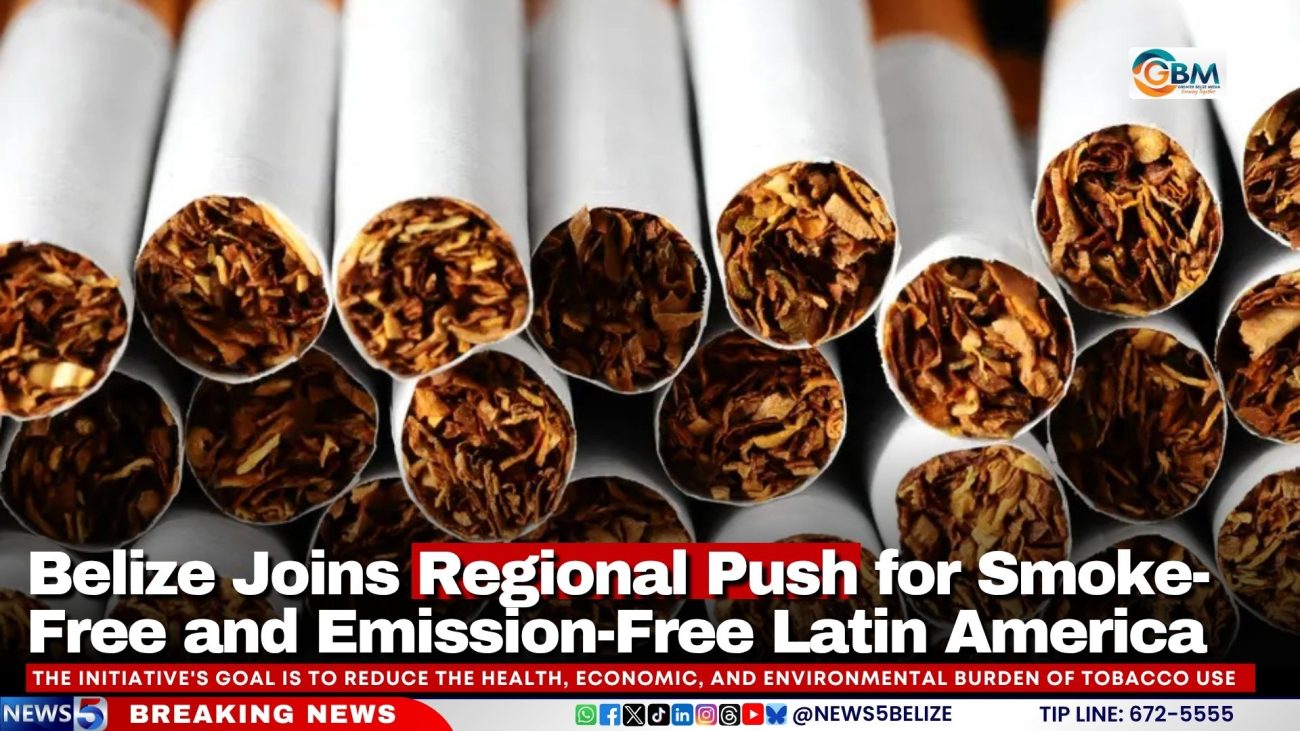Belize Joins Regional Push for Smoke-Free and Emission-Free Latin America
Tobacco remains one of the world’s deadliest and most preventable public health threats, killing more than seven million people each year. An additional 1.6 million non-smokers die from exposure to secondhand smoke.
The World Health Organization (WHO) warns that tobacco kills up to half of all users who do not quit, with around 80% of the world’s 1.3 billion smokers living in low- and middle-income countries.
This has made an urgent call for “smoke-free environments to protect the public, particularly vulnerable groups such as children and adolescents,” said the Pan American Health Organization in a statement.

As part of the global response, Belize has been selected as one of four countries participating in the “Towards a Smoke-Free and Emission-Free Latin America” initiative, spearheaded by PAHO/WHO in partnership with Bloomberg Philanthropies and the Ministry of Health and Wellness.
The initiative’s goal is to reduce the health, economic, and environmental burden of tobacco use while supporting global sustainability and public health goals.
“Belize ratified the WHO-FCTC [Framework Convention on Tobacco Control], which is a framework convention about control, in 2003. This is a framework really that sets the policy in place for us as a country to put evidence-based strategies in place to reduce the burden of tobacco use,” the Director of the Policy Analysis and Planning Unit, Dr Andrei Chell, told News 5.

During last week’s activities, Belize hosted a series of high-level courtesy visits, a capacity-building session, an intersectoral workshop, and a regional workshop with delegates from Cuba, the Dominican Republic, and Nicaragua.
“Through the internal capacity-building session, the NDACC and the MoHW’s capacity was strengthened to lead tobacco control efforts,” the Ministry stated.
The intersectoral workshop brought together representatives from health, tourism, labour, customs, civil society, and government to highlight the broader benefits of smoke-free policies.
According to WHO, the Framework has “been shown to save lives and reduce costs from averted healthcare expenditure.”






Facebook Comments